what is a hackathon? an inside look at the meaning and impact
Hackathon meaning in action: What I learned about digital resilience, community, and innovation by joining Estonia’s Garage48 hackathon to help my adopted home city recover.
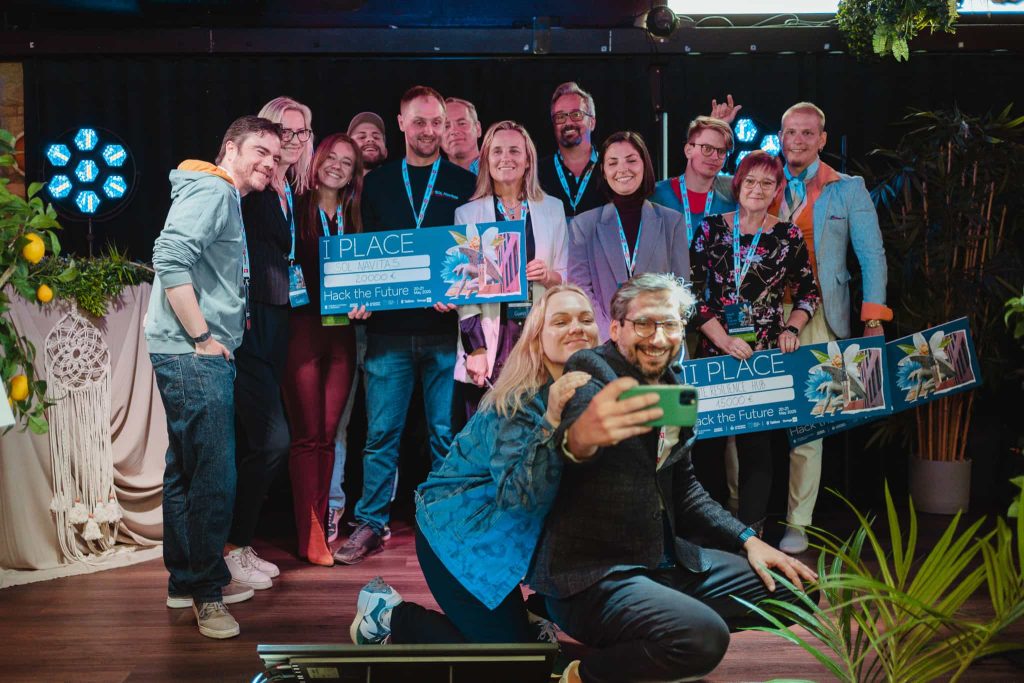
If you’ve ever wondered “What is a hackathon?” or searched for something like “hackathon meaning”, you’re not alone.
I have to admit that was me just a few short weeks ago. I was intrigued to hear from the e-Residency team that they were partnering to create a hackathon to support my chosen home city of Valencia – major parts of which were devastated by flooding in October 2024. So I knew it was time to learn more.
Hackathon meaning: More than just hacking
I rapidly learned that hackathons are more than just coding contests or sleep-deprived weekends with laptops and pizza boxes. They’ve become a critical engine for innovation across industries and regions, especially in digitally-forward nations like Estonia. These events have moved far beyond their software origins and are now shaping everything from sustainability projects to community resilience.
The term “hackathon” originated as a mash-up of “hack” and “marathon”.
At its core, a hackathon is a time-boxed event where teams come together to build solutions to defined challenges. These might be technological, social, environmental, or business-focused. Participants often have just 24 to 72 hours to develop an idea into a workable prototype or concept.
Hack the Future sought business backgrounds of all kinds, from marketing to crisis response to design, to come together in Tallinn in May 2025. The winners of the two-day event would take their solutions forward in Valencia over the summer.
But to do what, exactly? And how could a bunch of hackers in Estonia help people in my adopted home? I was still struggling to connect the meaning of hackathon to the needs of people who had lost their everything in such a few short hours.
Reflecting on the night that changed Valencia forever
The suburb I live in wasn’t directly affected by the DANA floods in October, which killed more than 200 people and destroyed homes, lives and infrastructure overnight. But every one of us were affected emotionally, and further in every practical sense.
As we strove to volunteer, donate and support those who had lost loved ones, livelihoods and everything they owned, we knew we were lucky. As remote workers, we had business continuity – at least once the power and mobile signal was back on (an event uncannily echoed by blackouts across the Iberian peninsula at the end of April 2025.)
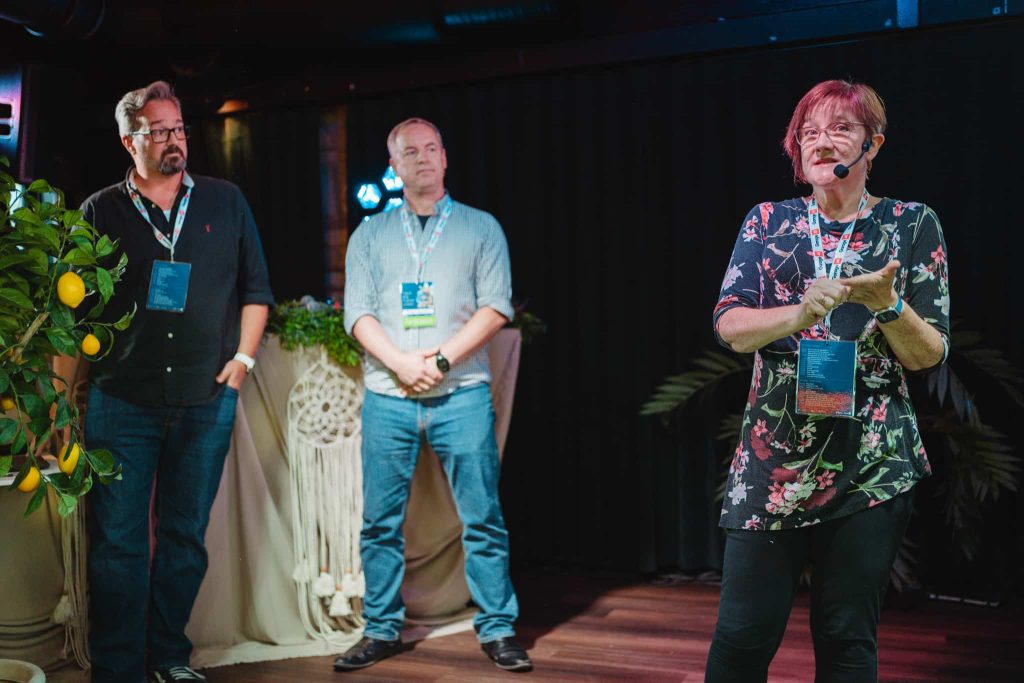
For thousands of people whose work depended on getting to a specific location, it was very different.
While major roads were repaired at impressive speed, we had no metro system for weeks. Many areas were almost cut off at busy times, even if they hadn’t been affected by the rising waters. Some knowledge-work businesses tried to switch to teleworking, but as one friend put it, “they were no better prepared than in the 2020 lockdowns.”
Hacking a new approach for remote workers in Spain
This was no great surprise, because Spain’s bureaucracy and old-fashioned systems are infamous, and for good reason. For those of us who have chosen to live here, they remain the subject of much fond yet exasperated conversation. Coming from the UK as I did many years ago, I found everything old-fashioned and bureaucratic to say the least. That was even before I’d discovered the digital wonders of Estonian e-Residency!
Even after many years, things can blow up in your face, from the tax office to the car registration system. For those newly arrived, it’s even more difficult to navigate the endless processes. To actually get an appointment at the right office. To avoid the Kafkaesque doom loops of inability to obtain document A without having previously done B, (while the official at office B swears blindly that you have to do A first…)
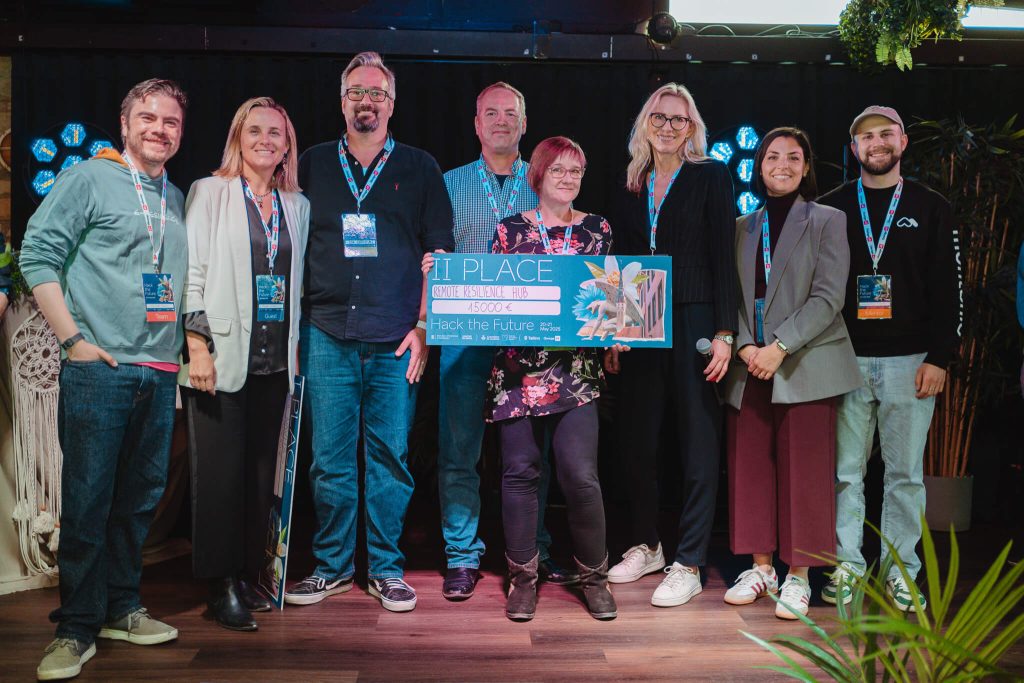
So long before the lights went out again in April, discussions with freelance friends often returned to the challenge of digital readiness in Spain. How we could use our experience with AI to fix everything for the better if we had the chance. And how we’d help workers across the city become remote-ready, for whatever the future might hold… Even for those moments when traditional digital channels failed.
Hack the Future, thanks to the City of Tallinn, City of Valencia, e-Residency, Startup Valencia, and Garage48, gave us that chance.
It challenged us to stop complaining over coffee, and try and do something tangible instead. So that’s why Jim Christian, James Leonard, and I headed to the other end of Europe to try and fix things closer to home.
Why hackathons matter
1
Innovation under pressure:
With limited time, teams must cut through bureaucracy and get to the heart of a problem. This constraint often leads to highly creative, practical solutions.
2
Networking and collaboration
Participants meet potential co-founders, employers, or collaborators. Many startups have their roots in hackathon conversations.
3
Learning and development
From pitch practice to product development, participants hone skills in a real-world context.
4
Talent discovery
For sponsors and partners, hackathons offer a front-row seat to emerging talent and novel ideas.
Hack the Future: A hackathon meaning heart and purpose
The Hack the Future event, co-organised by Garage48 and supported by Estonia’s e-Residency team, was not your average hackathon.
For a start, it was held in Tallinn during Latitude59 week, the premier event of Estonia's digital society that brings together global founders, investors, and impact-makers.
The hackathon brought together 17 interdisciplinary teams to develop solutions around resilience and sustainability. There was also a strong focus on north-south ties within Europe, and the Valencia region in particular.
Please to watch this video.
Some teams came fully formed with existing businesses and prototypes. Others simply brought their skills or ideas with a view to instant collaboration and connection, or to work on the ideas of others. The presence of mentors and stakeholders whose vision and encouragement helped to transform those ideas into reality.
Because the idea wasn’t just to brainstorm, but to build implementable projects that could be piloted over summer in Valencia, a region that’s increasingly vulnerable to climate and infrastructural challenges.
Speaking after the event, Guillermo Chávez García, from the e-Residency team and one of the judges, shared insights into its origins:
“We didn’t want this to be just another PR event. It was about meaningful collaboration, connecting Estonia’s innovation ecosystem with real-world challenges in Spain. It’s a statement of intent that e-Residency is not just digital, but deeply human and community-driven.”
Garage48, the Estonian innovation powerhouse behind the organisational effort, ensured the event moved from idea to execution with characteristic agility. They have hosted over 200 hackathons in 25 countries, with a track record of transforming ideas into impact. Simply keeping us fed, connected and following a strict timeline, all with humour, grace and positivity, was an epic achievement.
Estonia’s unique relationship with hackathons
Indeed, Garage48, founded in 2010, was among the earliest promoters of the hackathon format in the region. Events they’ve run have led to successful companies, community initiatives, and international cooperation.
Estonia’s e-Residency programme, meanwhile, has added a global dimension. Entrepreneurs from around the world can legally register EU companies in Estonia without ever setting foot there. Many of them take part in or organise hackathons to shape their ventures.
“We had people from Estonia, Spain, Mexico, Ukraine – all collaborating to create practical solutions to global problems,” Guillermo said. “That’s exactly what e-Residency is about: connecting minds without borders.”
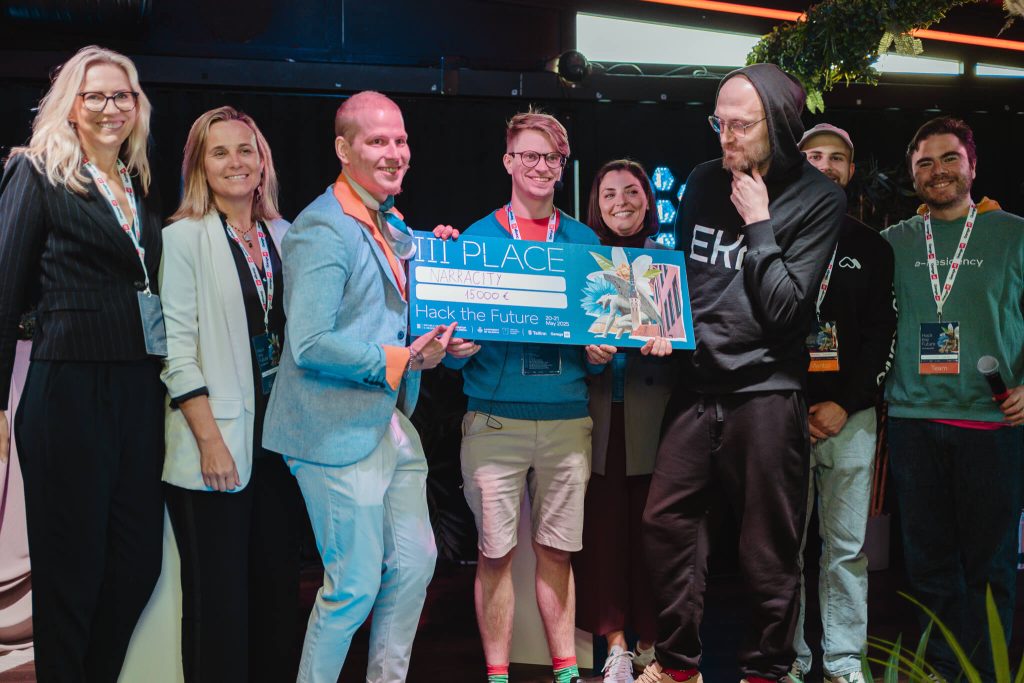
While the competing teams were flat out in the hacking space, many other things were happening behind the scenes, from mentoring rounds to the evaluation of submissions. The execution on Garage48’s part was flawless, and it was clear that the whole event was in safe and familiar hands. Guillermo admitted it was his first time judging a hackathon, and that he approached it with humility:
“I’ve been an entrepreneur. I work in innovation. But I still had moments of ‘who am I to judge these people?’ It made me realise that the diversity of perspectives – cultural, professional, experiential – is what makes these events so rich.”
Judging criteria weren’t limited to polish or presentation. They focused on feasibility, team readiness, and real-world application, especially over the coming months in Spain’s hot summer.
This pragmatic focus was refreshing. Some projects didn’t win prizes but are still being supported to develop. Others have potential commercial partnerships in view, including pre-fab housing solutions with Estonian suppliers.
“Hacking the Future” from the inside
As a hackathon newbie, I found the experience inspiring, intense, exciting, and exhausting in equal measure.
For this long-term solopreneur, it was also a reminder of the power of collaboration to achieve bigger goals and actually making changes instead of talking about them. Perhaps the real hackathon meaning for me was to focus on the synergies of true teamwork.
And thanks to the support of the organisers and recognition of the judges, our team is now exploring how to pilot the Remote Resilience Hub project in Valencia, with funding and mentoring in place. And yes, the whole initiative is being developed as an Estonian e-Residency company. It's built for global impact, yet rooted in Estonia’s digital trust framework.
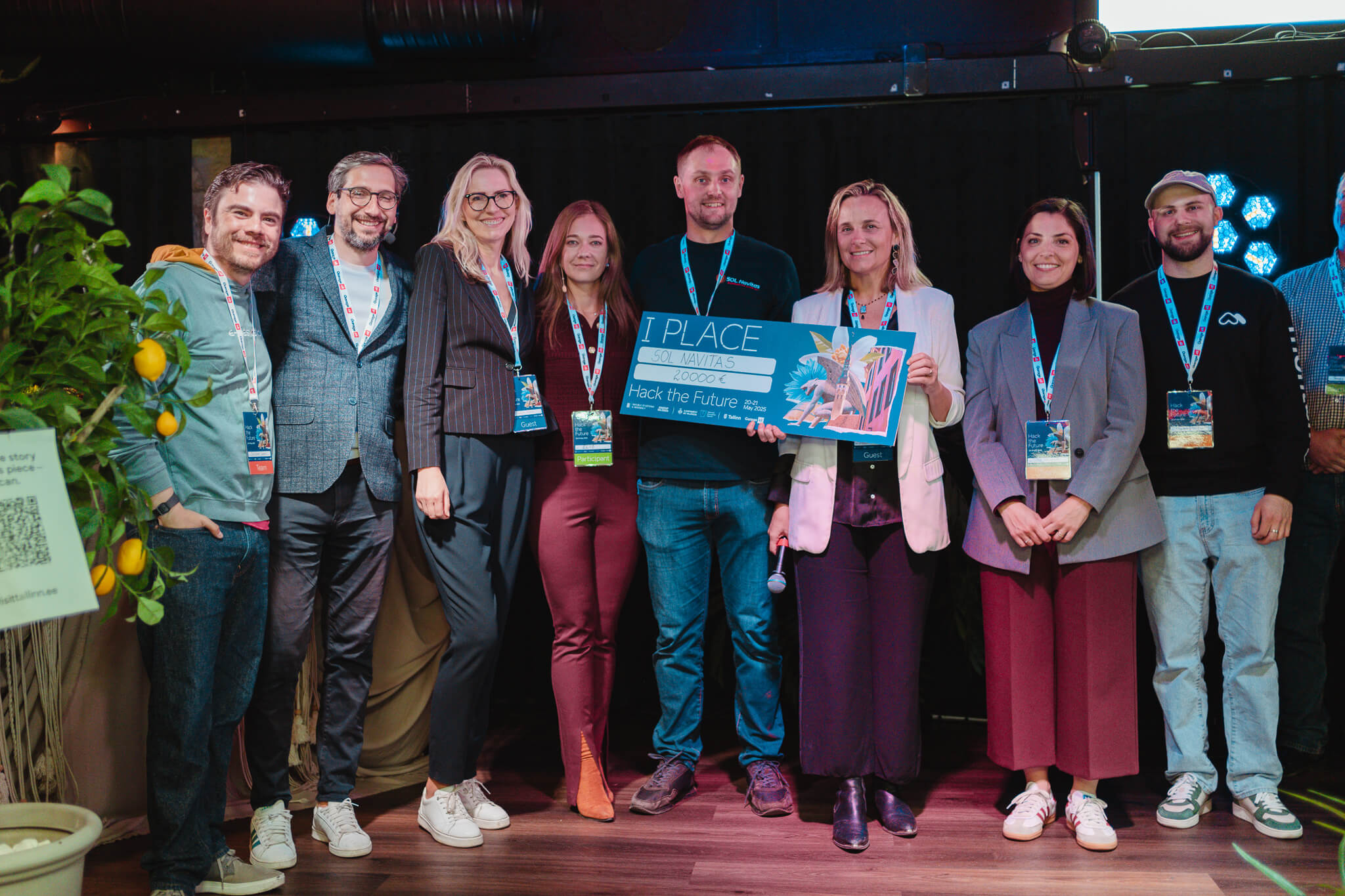
Real-world solutions to help Valencia
We also can’t wait to see how the first-place winners SOL Navitas fare in their mission to bring their established Nordic solar ventilation solutions to Valencia. The Mediterranean humidity is challenging enough even before thousands of homes were flooded.
Participating in the event wasn’t just rewarding professionally. It brought home how impactful a hackathon can be when it’s centred around real problems, with diverse, driven people who genuinely care.
The future of hackathons in Estonia and beyond
The success of Hack the Future has set the stage for future collaborations.
“We want this to be more than just a one-off,” Guillermo said. “If the pilot projects succeed, and if cities like Valencia become customers, it creates a virtuous cycle. Next time, we may attract even more pre-formed teams, ready to deploy real solutions.”
Hackathons, especially those hosted or supported in Estonia, perfectly encapsulate what the e-Residency programme stands for: collaboration, innovation, and entrepreneurship without borders.
They provide a visible stage for e-residents to showcase their ideas, meet collaborators, and scale concepts. And in doing so, they reinforce Estonia’s unique position as a global digital gateway.
So whether you’re a developer in Delhi, a designer in Durban, or a founder in Finland, if you’re thinking about joining a hackathon – especially one with Estonian roots – you’re not just building a prototype. You’re plugging into a global movement of changemakers.
And if you’re ready to take your idea forward after the hackathon ends?
Start and run an EU company entirely online
Now that’s what hacking the future really looks like.
More from e-Residency
- Sign up for our newsletter
- Watch fresh video content - subscribe to our Youtube channel
- Meet our team and e-residents - register for our next Live Q&A